
Finding Strength Together
Jasmin Cartwright, Therapeutic Worker on Young Gloucestershire’s Arcus project, shares the inspiring story of Sarah and Alex. Through Arcus, this family received crucial support to navigate the challenges of gender identity, autism traits, and societal pressures, transforming their journey from uncertainty to confidence and connection.
“When we first met Sarah (names changed for anonymity), a single mum of two, life felt overwhelming. Her eldest child, Alex, was transitioning from female to male, and her youngest showed traits of autism. Sarah had been referred to our Arcus service by a family support worker but was sceptical about what we could offer. Like many parents navigating unfamiliar territory, her mental wellbeing was fragile, her confidence shaken, and her knowledge of the LGBTQIA+ community shaped by the noise of social media and anxiety-inducing news outlets.
“Sarah’s journey with Arcus began hesitantly. She admitted feeling lost—unsure how to support Alex while battling fears about bullying, school policies, and societal prejudice. Her fears were compounded by misinformation and a lack of reliable resources.
“Through the Arcus service, we worked together to empower Sarah. We helped her step away from overwhelming online sources and provided balanced, supportive materials to build her understanding. We explored ways she could support Alex now and into the future, breaking the challenges into manageable steps. Together, we reviewed school policies, ensuring Sarah felt equipped to advocate for Alex. In time, Sarah’s confidence blossomed. She facilitated a meeting with Alex’s future school, which led to a thoughtful support plan: 1:1 mentoring, safe space bathrooms, the flexibility to join PE sessions based on comfort, and pairing Alex with another transitioning student for peer support.
“At the same time, Alex was also receiving tailored support through Arcus. For the first time, he felt truly heard and validated.
“Before Arcus, I had no one to talk to about my gender,” Alex shared. “No one seemed to understand transphobia or how it affects me. But now, I feel listened to. I’ve learned to manage my feelings, stand up for myself, and just be me.”
“The change in the family was profound. For Sarah, the sessions provided a space to learn, ask questions, and connect with others who understood. For Alex, it was a chance to grow his confidence and embrace his identity. As Sarah explained,
‘The support has been incredible. It’s given us both the space we needed to understand and support each other better. We’re stronger as a family because of it.’
“Stories like Sarah and Alex’s remind us why we do what we do. The Arcus service isn’t just about providing information—it’s about helping families navigate the unknown, build bridges, and create a future where everyone feels seen, supported, and valued.”
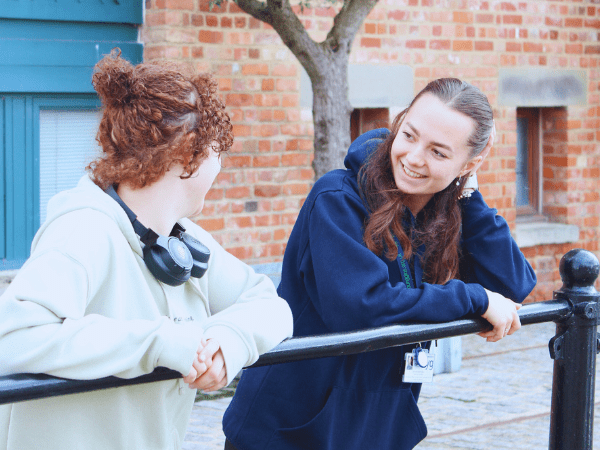
Supporting Ukrainian Refugees at Young Gloucestershire | Підтримка українських підлітків у Young Gloucestershire
Для перекладу цієї статті українською мовою натисніть на посилання нижче.
“My name is Khrystyna, and I am Ukrainian. Like many others, the war in Ukraine forced me to leave my home, and I arrived in the UK 1.5 years ago. Settling into a new country was incredibly challenging, despite having the advantage of speaking English due to my background as a translator and English teacher. I was fortunate to have the support of my boyfriend’s family, who have lived in the UK for over 20 years. Their help made my transition a little smoother.
“When I arrived, I was determined to continue my teaching career, but I quickly discovered that my qualifications from Ukraine weren’t sufficient for schools in the UK. They required a different level of certification, which would take time to achieve. Needing work, I took a job in a café to earn money while adjusting to my new life.
“Eventually, I found a position as a cover teacher. The job was rewarding but difficult, especially as the UK education system is quite different from what I knew in Ukraine. Unfortunately, some students didn’t treat me well because of my accent and nationality. It was disheartening, but my passion for working with children kept me going. I knew I wanted to find a job where I could make a bigger difference.
That’s when I came across a job posting from Young Gloucestershire (YG). As soon as I saw it, I knew this was my calling. YG was launching a project to support Ukrainian young people—something I felt deeply connected to. I applied immediately, and a few weeks later, I joined the team. For the first time since arriving in the UK, I felt like I was in the right place, where I could use my experiences to help others who were going through the same struggles.”
The Young Gloucestershire Ukrainian Refugee Programme
“In July, we launched a programme at YG specifically designed to support Ukrainian young people aged 11 to 25. Our aim is to help them navigate the many challenges they face in their personal, social, and educational lives. We provide practical support in areas such as booking doctor’s appointments, setting up self-care routines, and building self-confidence. We also help them find jobs or write CVs, develop goals, and explore motivation. But more than that, we create a space where young people can simply be themselves, whether that’s playing games, cooking, drawing, or just chatting about everyday topics. Each session is tailored to the individual’s needs and interests.
“Our mentoring sessions last 50 minutes and take place once a week for six months. We meet with young people at our offices in Gloucester, Cheltenham, or Tewkesbury, or we can work in schools or community spaces where they feel most comfortable. The key is flexibility—creating an environment that feels safe and welcoming.”
The Bigger Picture in Gloucestershire
“Since the Russian invasion of Ukraine, more than 200,000 Ukrainians have sought refuge in the UK, with about 1,200 living in Gloucestershire. While the county has provided support in terms of housing, education, and financial aid, young people are still facing significant barriers, especially in schools. Many struggle with feelings of isolation, anxiety, and trauma, which are only heightened by the language barrier and cultural differences.
“As a result, many Ukrainian students find it hard to integrate. Susi Ridley-Marshall, a teacher at Archway School, where I work closely with students, highlighted that a significant number of Ukrainian students are feeling isolated. Despite their strong language skills, they tend to stick together with other Ukrainian students rather than branching out to make English friends. This has been particularly challenging for those who arrived at secondary school age, like those in Year 9, where friendship groups are already established.
“Susi shared, “Archway School has had about 45 Ukrainian students since April 2022, though some have since moved back to Ukraine or relocated within the UK. Currently, there are around 20 Ukrainian students at the school, and while many of them are making progress, the adaptation process is still difficult. These students are dealing with the trauma of war, compounded by the challenges of adjusting to a new language and education system. Some are also grappling with feelings of anger and resentment about being in the UK—they want to return to Ukraine but are uncertain about whether that will ever be possible.” She also noted that “students who attended primary school in the UK before transitioning to secondary school have found it easier to settle in, compared to those who arrived later. For many older students, the struggle to make friends and feelings of loneliness are ongoing issues.”
“In response to these challenges, we at Young Gloucestershire are working hard to provide support tailored to these young people’s unique needs. Through our programme, we aim to help them develop self-confidence, overcome language barriers, and find their place in British society.”
A Call for Connection
“Many of the young people we support have experienced significant trauma from the war. Some spent weeks or even months hiding in basements from rocket attacks or living under occupation. Understandably, these experiences have left deep scars. That’s why part of our work focuses on helping them feel safe again, both emotionally and physically. We use techniques to help them process their memories of the war and remind them that they are now in a safe environment.
“Schools play a vital role in this process as well. teachers can be a lifeline for Ukrainian students, offering extra English lessons and providing space where they can come together during breaks. However, the sense of isolation remains for many, especially when it comes to building friendships with British students.
Students tell me “small gestures can make a big difference. If classmates reach out, whether it’s inviting Ukrainian students to birthday parties or simply offering to help with homework, it goes a long way in helping us feel included.” Many of the young people we work with talk about how meaningful these connections are and how much they long for more opportunities to socialise outside of school.”
“At Young Gloucestershire, we are proud to be offering these young people the support they need to heal and grow. Through our work, we hope to help them not just survive but thrive in their new lives here in the UK.”
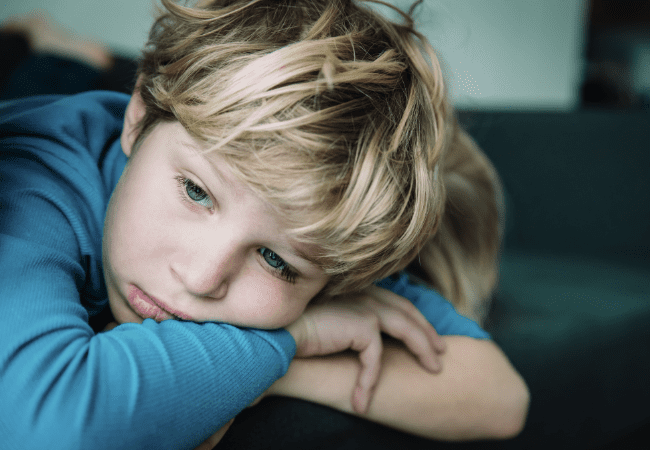
Supporting Families Through Challenging Times
When a family member becomes involved with the Criminal Justice System, the ripple effects are felt by everyone—especially the family left behind. Often overlooked in conversations about crime, these families bear emotional, financial, and social burdens in silence. This is where the Hidden Victims of Crime project steps in, offering vital, compassionate support. But what exactly does this project do, and why is it so important?
What is the ‘Hidden Victims of Crime’ Project?
The Hidden Victims of Crime project provides tailored, practical support to families who are affected by a loved one going to prison or becoming entangled in the justice system. The project is entirely free, ensuring that families have access to specialized help without the worry of additional costs.
Each family is paired with a dedicated therapeutic caseworker who conducts an in-depth needs assessment. From there, a personalized plan of action is developed, offering everything from mediation and advocacy to emotional support for children. The goal is to help these families navigate the emotional turmoil, social stigma, and practical challenges they face.
Why Are They Called “Hidden Victims”?
When we talk about crime, the focus tends to be on the offender, the direct victim, and sometimes the wider community. But there’s another group who suffers just as profoundly—the families of offenders. These families, particularly the children, are often forgotten or neglected within the criminal justice process, making them “hidden victims.” They aren’t just bystanders; they are direct and indirect victims of the offender’s actions, experiencing emotional distress, societal stigma, and significant disruptions to their daily lives.
The Impact on Children: Shocking Statistics
Children are particularly vulnerable to the effects of having a parent involved in the criminal justice system. In the UK alone, around 312,000 children have a parent in prison at some point each year, according to a 2019 report by the Prison Reform Trust. That’s approximately 2.5% of the child population in England and Wales. These children face a host of challenges, including:
- Educational disruption: They are twice as likely to struggle with behavioural issues, poor academic performance, and absenteeism.
- Living instability: Many children are cared for by other family members, such as grandparents or aunts, while some even enter the foster care system.
- Long-term mental health impacts: Children of incarcerated parents are at a higher risk for anxiety, depression, and trauma-related disorders.
- Increased risk of criminal behaviour: These children are more likely to engage in criminal activity themselves, perpetuating a cycle of crime within families.
Measuring the Impact: How the Project Helps
The Hidden Victims of Crime project doesn’t just offer support; it tracks the impact of its work to ensure real, measurable progress. The Warwick-Edinburgh Mental Well-being Scale (WEMWBS) is used alongside an 18-statement questionnaire, creating a baseline for each individual. This allows us to monitor their progress over time.
In the past year, the project has seen positive changes in many areas:
- 67.9% of individuals reported improvements in school attendance.
- 54.8% reported better mental health outcomes.
- 76.7% saw improvements in their overall family situation.
- 43.5% showed greater engagement in community activities.
These numbers reflect the transformative impact the project has on the families it serves.
The Short- and Long-Term Impacts on Children
The emotional and psychological effects on children whose parents are involved in the justice system can be both immediate and long-lasting.
Short-Term Impacts:
- Emotional distress: Fear, confusion, and anxiety are common reactions, particularly if the child witnessed the arrest.
- Stigmatization: Children may face bullying or social isolation due to their parent’s criminal involvement, leading to feelings of shame or rejection.
- Family disruptions: Changes in caregiving arrangements and economic hardship often follow, adding further instability to the child’s life.
- Academic struggles: Emotional turmoil can lead to declining school performance and behavioural issues.
Long-Term Impacts:
- Mental health challenges: Children are at higher risk for depression, anxiety, and even substance abuse later in life.
- Intergenerational crime: Sadly, many children of offenders are at greater risk of becoming involved in criminal activity themselves, perpetuating the cycle of crime.
- Educational and employment setbacks: The disruptions caused by a parent’s incarceration can lead to lower educational attainment, making it harder for these children to find stable, well-paying jobs in the future.
Breaking the Cycle: Theories Behind the Work
The Hidden Victims of Crime project is grounded in well-established psychological and sociological theories. One key framework is Attachment Theory, which suggests that children’s early bonds with their caregivers are crucial for emotional development. When a parent is removed from a child’s life due to incarceration, it can lead to attachment disorders, making it harder for the child to form healthy relationships and trust others.
Another is Life Course Theory, which explores how early life experiences can shape a person’s future behaviour. A child who grows up in a chaotic environment, where crime is normalized, is more likely to follow a similar path. By offering early interventions, like the ones provided by the Hidden Victims project, we can disrupt this cycle.
Real Stories, Real Change: A Family’s Journey
One family we supported had a parent in prison for a long sentence. The mother reached out to us because her son was struggling emotionally and socially. Through 1:1 sessions at home and school, using creative therapeutic approaches, we were able to help the young boy process his feelings and develop healthier coping mechanisms.
Here’s what his mother had to say:
“My son has been working with your service for a couple of months now, and it has been amazing. I’ve watched him become engaged and excited about his sessions each week. He’s learned to talk about his feelings, and the support has been wonderful for him and for us as a family. I just wanted to say thank you. We really appreciate it and hope you can continue supporting us through our family’s struggles.”
Why This Work Matters
At its core, the Hidden Victims of Crime project offers families—especially children—a lifeline during one of the most challenging times in their lives. By providing emotional support, advocacy, and therapeutic interventions, we can help break the cycle of crime and give these children a chance for a brighter, more stable future.
This is not just a project; it’s a vital service that fills a gap in the justice system, ensuring that the hidden victims of crime are no longer left behind.
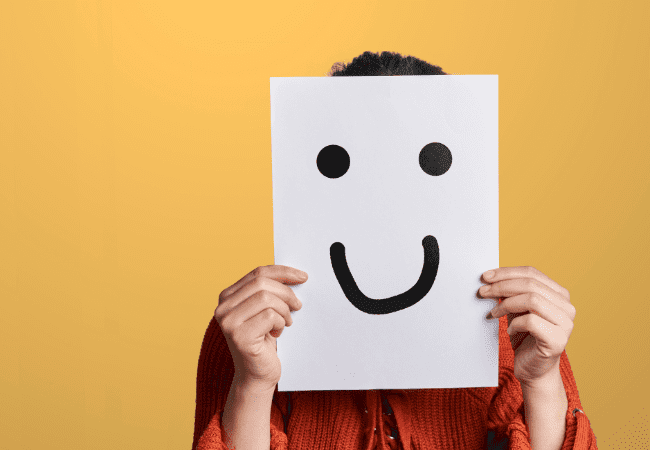
World Suicide Prevention Day 2024
Counsellor and Therapeutic Service Manager, Lois Norman discusses how to spot the signs, start meaningful conversations, and offer support:
Tuesday 10th September marks World Suicide Prevention Day, a global initiative to raise awareness, reduce the stigma around suicide, and take proactive steps to prevent it. According to the World Health Organisation, 726,000 people take their own life every year, with many more attempting suicide. In 2021, suicide was the third leading cause of death among 15–29-year-olds globally.
At Young Gloucestershire (YG), we see first-hand the growing demand for mental health support among young people. As referrals to our services increase, our mental health offer continues to expand to meet the needs of those facing significant challenges.
Breaking the Silence: Talking About Suicide
For many young people, talking about suicide can feel overwhelming – whether they’re experiencing suicidal thoughts themselves or are worried about someone else. But by talking openly about suicide, we’re not only raising awareness; we’re also starting to break the stigma that surrounds it.
We can all play a role in this. By sharing knowledge, speaking openly, and breaking the silence, we help create a more supportive environment. Simple acts of kindness, like listening, asking how someone is doing, or just being there, can offer hope. It’s important to remember that people don’t always have the words to express how they feel, and it can be difficult to know if someone is struggling with their mental health or experiencing suicidal thoughts.
Recognising the Signs of Suicidal Thoughts
The signs that someone may be having suicidal thoughts can be subtle, and not everyone shows the same signs. But research shows that asking someone directly about suicide can actually reduce the risk of them ending their life. Giving them the space to talk openly can provide an opportunity to seek help and stay safe.
Here are some signs to watch for if you’re concerned about someone:
- Withdrawal from friends, family, work, school, or hobbies. They may lose interest in things they once enjoyed.
- Physical changes, such as a lack of interest in personal appearance, not changing clothes regularly, poor personal hygiene, or noticeable weight loss.
- Unusual behaviour, like giving away possessions they care about, including sentimental items, pets, or valuables.
- Feelings of hopelessness or worthlessness. They may express guilt or feel as though their life has no purpose.
- Changes in language: Statements like “I can’t take it anymore” or “Everyone would be better off without me” are signals that they may feel trapped or hopeless.
- Sleep disruptions, whether sleeping much more or much less than usual.
- Sudden mood swings, anger outbursts, or engaging in risky, out-of-character behaviours.
If you notice these signs, starting a conversation can be a critical first step. You don’t need the perfect words – just asking if they’re okay can open the door to a meaningful discussion. Offering help and encouraging them to seek professional support might be life-saving.
How You Can Support Your Own Mental Health
Mental health is as important as physical health. Here are a few practical ways to support your well-being:
- Stay connected: Building and maintaining relationships can improve self-worth and foster a sense of belonging. Spend time with friends, chat online, volunteer, or go for a walk with someone you trust.
- Be active: Physical activity boosts your mood by causing positive chemical changes in your brain. Take a walk, join a gym, or participate in a sporting activity.
- Learn something new: Developing a new skill can bring a sense of achievement and purpose.
- Practice acts of kindness: Helping others can create positive feelings and a sense of reward.
- Eat healthily and stay hydrated: Regular, nutritious meals and hydration are essential for both physical and mental well-being.
- Prioritise sleep: Good sleep hygiene is critical for a healthy mind and body. Aim for a consistent sleep schedule and a restful environment
Available Support for Suicidal Thoughts
Around 1 in 4 young people experience suicidal thoughts, often due to a mix of factors. Reaching out for help can feel daunting, but knowing where to start is crucial. Available support might include:
- Talking therapies, such as counselling
- Medication, prescribed by a healthcare professional
- Community mental health support, offering ongoing guidance
- Crisis services, for urgent care
- Peer support, connecting with others who have similar experiences
At Young Gloucestershire, we’re dedicated to helping young people find the right mental health support, even though we don’t offer crisis services directly. Our counsellors and youth workers are highly trained and create safe, non-judgmental spaces where young people can talk about their feelings.
If You Need Urgent Help
If a young person needs urgent assistance, please reach out to:
• 999 (emergency services)
• NHS Crisis Team: 0800 169 0398
• Text ‘SHOUT’: 85258
• Samaritans: 116 123 or email jo@samaritans.org (24/7)
• Childline: 0800 1111
• Papyrus HOPELINE: 0800 068 4141, text 07860 039 967, or email pat@papyrus-uk.org
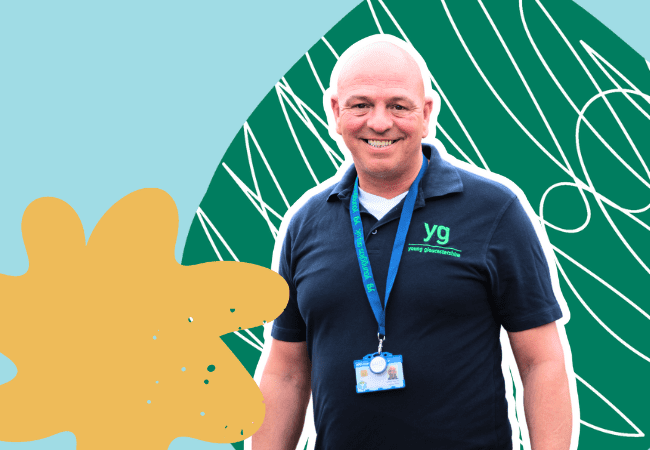
From Struggle to Strength: Supporting Young People Through Substance Misuse
By Julian Kite, Young Person’s Substance Misuse Worker
“My name is Julian, and I am a Young Person’s Substance Misuse Worker for Young Gloucestershire. I relocated to Gloucestershire from South Derbyshire in 2018, after undergoing a medically induced detox and spending six months in rehabilitation for drugs and alcohol. My personal drug of choice was alcohol, which I abused for over 25 years to cope with childhood traumas. It started with my first taste of rum and quickly escalated to using spirits as a coping mechanism.
“For many years, I managed to hold down full-time employment as a Project Manager for National Housebuilders. I had no idea that my drinking was detrimental to my health and well-being; it felt normal to me. It was only through comments from others that I began to realise I had a problem. In 2015, a good friend encouraged me to seek help as my daily alcohol consumption had spiraled out of control. I reached out to a drug and alcohol service in Derbyshire and agreed to undertake a home detox, as the amount I was drinking had become dangerous.
“The home detox lasted about four months, but without alcohol, I turned to cocaine, MDMA, and prescription medication. My mental health deteriorated dramatically. By 2016, I was back to consuming alcohol at previous levels, supplemented by drugs. This led to numerous overdoses and hospitalisations. I was drinking two bottles of Southern Comfort daily, yet somehow still holding down employment. My employer eventually requested a fit note from my GP, who, knowing my history and recent hospitalisations, refused to issue it.
“With my employer’s support, I took time off on full pay, but without the structure of work, my alcohol and drug intake increased, leading to constant overdosing. My health and financial decisions were taken over by my brothers, who got me on a pathway to rehabilitation. In January 2018, I entered detox and rehab. After completing the first three months, I was allowed a home visit. Unfortunately, I relapsed, buying vodka and overdosing on the way. I was fortunate to be allowed back into rehab, where I completed the final three months, receiving counselling and trauma-informed EMDR therapy. During this time, I completed courses in Drugs and Alcohol in Society and peer mentoring.
“I left rehab in July 2018 and relocated to Gloucester, as it was recommended to avoid returning to my previous environment. I moved into a dry house with supported accommodation and started volunteering at NHS Homeless Healthcare. Volunteering three times a week helped me stay sober and gave me a sense of purpose. I was eventually offered full-time employment with the NHS Foundation Trust at Gloucester Royal Hospital in Trauma Orthopaedics. Although this role wasn’t directly related to substance misuse, it allowed me to give back to society. I also completed accreditation in Substance Misuse, adding formal qualifications to my 25+ years of lived experience.
“In 2023, I saw Young Gloucestershire advertising for a Young Person’s Substance Misuse Worker. I gave this opportunity serious thought, wondering if such a role had existed when I was younger, could my outcome have been different? This position felt almost tailor-made for me, allowing me to give back from a substance misuse perspective and support the community in Gloucestershire that had been so good to me during my recovery journey.
Understanding the Challenges
My journey has given me deep insights into the challenges young people face today regarding substance misuse. The pressures of modern life—academic stress, social media, family issues, and peer pressure—can all contribute to the likelihood of young people turning to substances as a coping mechanism.
Spotting the Signs
Recognising the signs of substance misuse early can make a significant difference. Here are some indicators that a young person might be struggling with alcohol misuse:
You might be misusing alcohol if:
- You feel you should cut down on your drinking.
- Other people have been criticising your drinking.
- You feel guilty or bad about your drinking.
- You need a drink first thing in the morning to steady your nerves or get rid of a hangover.
Someone you know may be misusing alcohol if:
- They regularly drink more than 14 units of alcohol a week.
- They sometimes cannot remember what happened the night before because of their drinking.
- They fail to do what was expected of them as a result of their drinking (e.g., missing an appointment or work because they’re drunk or hungover).
Getting Help
If you’re concerned about your drinking or someone else’s, a good first step is to see a GP. They can discuss the services and treatments available. Your alcohol intake may be assessed using tests. As well as the NHS, there are numerous charities and support groups across the UK that provide support and advice for people with an alcohol misuse problem, such as:
- Drinkline national alcohol helpline: 0300 123 1110
- Alcoholics Anonymous helpline: 0800 9177 650
- Al-Anon Family Groups helpline: 0800 0086 811
Treating Alcohol Misuse
Treatment options include:
- Counselling: Self-help groups and talking therapies, such as cognitive behavioural therapy (CBT).
- Medicines: To help stop withdrawal symptoms and to reduce the urge to drink.
- Detoxification: Supported by a nurse or doctor to safely stop drinking, either by gradually reducing intake or using medication to prevent withdrawal symptoms.
Statistics show the importance of addressing these issues early. According to the UK government’s report for 2022-2023, there were 12,418 young people in treatment for substance misuse, highlighting the critical need for these services.
My Message to Young People
“To any young person reading this: you are not alone. The journey to recovery is challenging, but with the right support, it is entirely possible. Don’t be afraid to reach out, ask for help, and take the first step towards a healthier, brighter future. Remember, it’s never too late to change your path and seek the support you need.
“In my role at Young Gloucestershire, I am committed to helping young people navigate these challenges and find the support they need. My experience has shown me that recovery is possible, and I am here to guide you every step of the way.”
Young Gloucestershire’s Substance Misuse Programme
At Young Gloucestershire, we deliver a Young Person’s Substance Misuse Programme on behalf of the Drug and Alcohol Provider for Gloucestershire, V-I-A. The programme supports young people aged 16-25 through one-to-one weekly sessions, either face-to-face, on zoom call or with phone calls, and text messages. Support lasts for up to six months and is aimed at providing early intervention through education and mentoring. Our outreach programme operates in community spaces like coffee shops and across YG Hubs and Via Hubs across the county, providing a friendly and relaxed approach as we look at young people’s habits, behaviours and choices.
Get Support
If you know someone who might benefit from this service, or you are a young person who would like some help then complete our online referral form.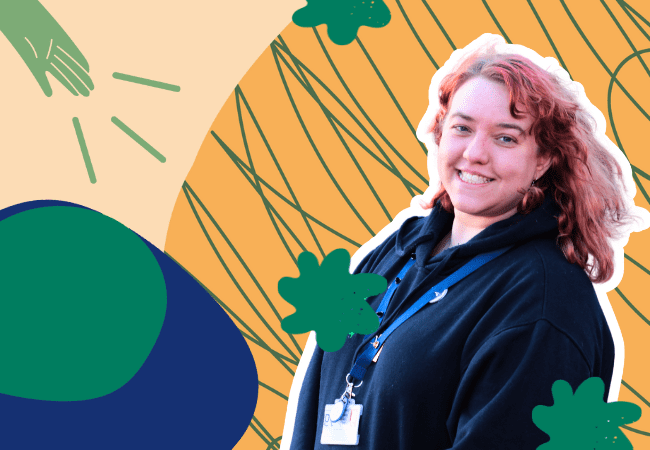
Evolving Safeguarding
Young Gloucestershire has undergone a significant transformation in its safeguarding policies and procedures over the years. As the charity has grown in size and increased the number of young people we support, the need for robust systems to protect both staff and young people has become ever more crucial. Previously, safeguarding responsibilities were shared among senior management, but we are now pleased to have introduced a full-time designated safeguarding lead. This ensures consistency and allows us to expand our safeguarding initiatives across the organisation.
Jessica John joins Young Gloucestershire with a strong commitment to educating and safeguarding young people, ensuring the next generation in our community and county can lead happy and successful lives. Jessica has a keen interest in cognitive behavioural development, which complements her natural nurturing instincts and patience. This combination allows her to effectively investigate and respond to concerns, as well as assess risks that impact the safety and welfare of young people in the county.
Here, Jessica shares her experience and insights into the evolving landscape of safeguarding within Young Gloucestershire:
“Since joining YG, I’ve loved getting to know the staff and have a great deal of respect for their diverse experiences. They’ve taught me so much already! I find it fascinating to observe how people learn, and I’ve enjoyed sharing new safeguarding concepts and methods with the team, who have been really enthusiastic.
“We’ve been busy reviewing our processes and conducting audits to make sure we’re giving the best support possible, so everyone can feel safe and happy. Taking action to look out for our young people and keep them safe is a top priority for us here at YG. And you know what? We’re all in this together! We’re here to be accountable for our decisions and actions, always aiming for the best outcomes through our advice and guidance.
“Our journey of learning has been quite the adventure! We’ve delved into legislative frameworks relevant to safeguarding, which has led to rigorous staff training and ongoing improvements to meet the changing needs of government and society. Thanks to all this hard work, we’ve earned a reputation as a trusted partner in the safeguarding field. We’ve been fortunate to put our expertise to good use in effective multi-agency collaborations.
“Currently, we’re actively involved in local council meetings, especially those focusing on safeguarding at a subgroup level. Our dedicated workers also attend social care meetings to support families through multi-agency efforts. But it doesn’t stop there! We also contribute to education and practice reviews.
“Recently, we were part of a huge effort with over 700 organisations to review the changes in the DFE Working Together guidelines for 2023. This work led us to conducted a skills audit of our staff, and we are now reflecting on our practices to implement changes, particularly in areas like historical abuse and hoarding, which have become policy priorities. It’s all about staying proactive and making a real difference where it matters most.
“Our involvement in multi-agency settings has really made a difference! It’s resulted in better outcomes for children, young people, and families all around. At YG, we’re constantly strategizing and making changes that lead to improved services and strong partnerships with parents, children, young people, families, and various institutions and settings.
“By working closely together, we’ve been able to develop and enhance service provision, ensuring that we’re always meeting the needs of those we support. It’s all about teamwork and making positive strides forward, hand in hand with our community.
“As safeguarding needs continue to change and grow, we are always looking for new ways to meet needs and ensure the best support for our young people. We have now introduced a dedicated team of safeguarding consultants and champions who act as experts in each department and are always ready to advise staff on any concerns.
“In the ever-changing world of safeguarding, recent events like Covid and the rise of technology have brought about new challenges, especially with online harms. That’s why we’re thrilled to introduce our new programme aimed at tackling these issues head-on: ‘Online Modern Harms.’ Thanks to funding and support, we’re diving into the realm of contextualised safeguarding, addressing risks beyond the home and finding innovative ways to support young people in the digital world.
“We are able to work with 11-18 year olds, either one-to-one for 12 weeks or in small groups of 4-8 for 6 weeks. We are also happy to address larger school groups as part of assemblies. It’s all about staying ahead of the curve and ensuring the safety and wellbeing of our community.”
Find Out More
Check out YG’s safeguarding team and policies, or get in touch to find out more about our ‘Online Modern Harms’ Programme.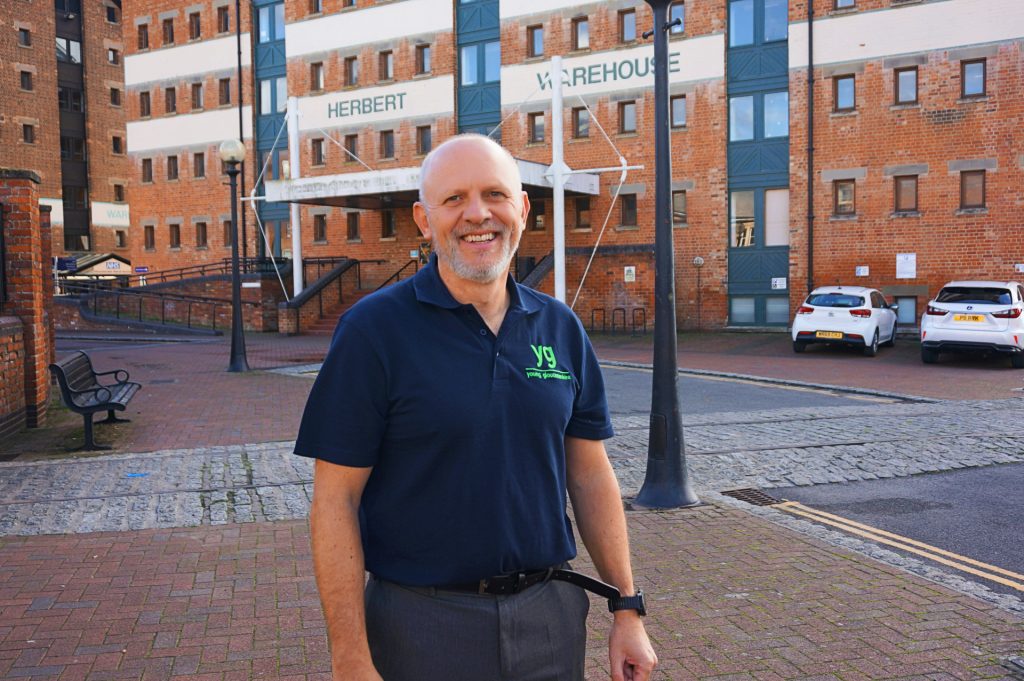
Running for Wellbeing
“I’m Karl Gwilliam, Fundraising Manager here at YG. As part of Mental Health Awareness week and the theme of ‘Moving for our Mental health’ I want to share how running has become my go-to for staying active and keeping my physical and mental health in check.
“At 53, I might not be breaking any speed records or covering marathon distances, but I lace up my running shoes nonetheless. Sure, my knees sometimes protest, and my calves and Achilles can be touchy, especially in the chilly, damp winter months. But here’s the thing – skipping my runs leaves me feeling sluggish and irritable. So, I keep at it.
“For me, running hits all the marks when it comes to the “5 Ways to Wellbeing”: Be Active, Take Notice, Learn, Connect, and Give. And because of that, I feel a whole lot better in myself.
Be Active:
Running (or even walking) isn’t just about keeping physically fit; it’s a game-changer for mental wellbeing too. Just like Forrest Gump hit the road to clear his head, running has been my therapy through tough workdays and the chaos of dealing with CV19.
Take Notice:
I’m not a fan of pounding the pavements in urban areas; I’d rather head off-road. Lucky for me, living in Gloucestershire means I’m surrounded by fields, hills, woods, and rivers – my running playground. Nature’s surprises are endless; from spotting local wildlife to unexpected encounters with turtles and porpoises, each run feels like an adventure. Being out in nature calms my mind and reminds me to focus on the big picture.
Learn:
Trail running requires a different skill set than road running, especially when it comes to navigation. So, I’ve had to brush up on my map-reading skills. And lately, I’ve swapped my silent runs for podcasts – a great way to learn something new while pounding the trails.
Connect:
My family and I are regulars at Parkrun, a fantastic community event that brings people together for a free 5km run every Saturday morning. It’s become a family tradition, and we’ve made connections with other runners that go beyond the finish line. The sense of belonging is priceless.
Give:
Sure, I get frustrated by litter and fly-tipping on my runs, but I try to do my bit to give back. Whether it’s reporting litterbugs or joining local clean-up efforts, every little helps. And let’s not forget the fundraising opportunities that running provides – it’s a win-win. Huge numbers of people each year take part in events such as the London Marathon and local events such as the Gloucester 10k and raise millions for charities across the world. Having a target and doing something positive like this is a great way to give yourself motivation and drive to get up and get moving.
Getting Started:
Running is simple; all you need is a decent pair of trainers and the will to start. But if you’re new to it or have health concerns, it’s worth checking in with a medical pro first. And when you do hit the road, be safe – let someone know where you’re going, carry your phone, and wear something bright if you’re running at night.
Here are my top tips for getting started:
- Ease In: If you’re new to running, try the NHS Couch to 5K app. It’ll guide you through a gradual programme to build up your stamina.
- Join Parkrun: Look up your local Parkrun events – they’re inclusive and welcoming to all abilities.
- Set Goals: Sign up for a running event later in the year. Having something to aim for keeps you motivated.
- Track Your Progress: Apps like Strava are great for monitoring your runs and setting challenges to keep you on track.
- Find a Buddy: Running with a friend or joining a club can make it more enjoyable and keep you accountable.
“So, if you’re looking to boost your physical and mental health, why not lace up those trainers and hit the road? It might just be the best decision you ever make.”
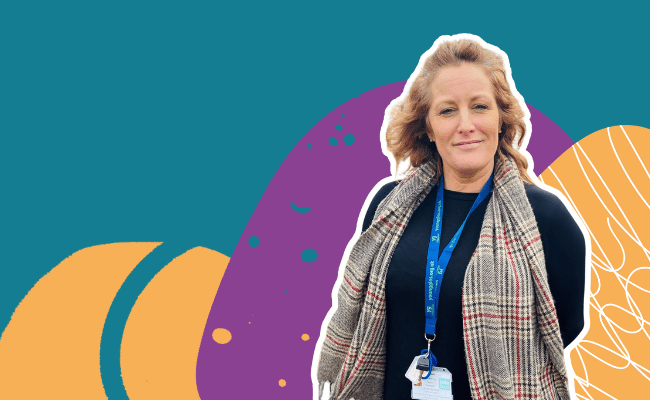
Stress Awareness Month
Senior Manager for Therapeutic Services and Counsellor, Clare Farman discusses different types of stress, how it can effect us and what we can do to manage our stress.
“Stress is a natural part of being human – it’s something we all experience. But not all stress is created equal. Let’s explore it further.
“Consider this: you’re gearing up for an exam or planning the big day of your dreams. That flutter of nerves you feel? That’s healthy stress. It’s like your body’s way of saying, “Hey, let’s get ready to tackle this!” It can actually motivate us to study harder, get organised, and shine when the big moment arrives.
“On the other hand, there’s the less enjoyable stress. Think of those days when work feels like a never-ending mountain of tasks, or when money worries keep you up at night. That’s the kind of stress that can weigh us down and leave us feeling drained.
“It’s important to recognise the difference because healthy stress can give us a boost, while too much of the other stuff can really take a toll on our well-being. If we let stress run wild for too long, it can lead to burnout, anxiety, or even depression. So, knowing when to draw the line between healthy and unhealthy stress is key.
“Young people have got their own set of stressors, from the pressures of school and friendships to navigating family dynamics and social media. It’s a lot to juggle, especially with all those major life milestones popping up left and right – changing schools, getting a driver’s licence, figuring out their next steps in life. The list goes on.
“Recognising these stressors and finding ways to cope is super important. Whether it’s reaching out for support or finding healthy ways to unwind, helping young people navigate stress is essential for their well-being and this is something our Mental Health Youth Workers are regularly helping young people with here at YG.
“But guess what? Stress doesn’t clock out when we punch in at work. Nope, it can follow us into the workplace, too. From tight deadlines to office politics, there’s plenty that can leave us feeling frazzled. But fear not! By fostering open communication, setting realistic expectations, and making sure everyone has the support they need, we can create a work environment that’s more chill and less chaotic. Here at YG we have a number of processes to support our staff to maintain a positive work/life balance including; regular one-to-ones, well-being plans, a framework of working hours, ensuring phones and emails are not responded to outside working hours, and ensuring regular annual leave is being taken. By recognising and addressing workplace stress as a shared responsibility between organisations and employees, both parties can work together to create a healthier, more supportive work environment that promotes employee well-being and productivity.
“The first steps towards managing stress is to be able to recognise the signs of stress and to be able to spot when stress is becoming difficult to manage. Signs may include feeling constantly overwhelmed, having trouble sleeping, experiencing physical symptoms like headaches or stomach-aches, or noticing changes in mood, tolerance or behaviour. It is not always easy to notice the subtle physical signs of stress, so it is important to ensure we have the time to assess ourselves. Self-reflection is a valuable tool for understanding our thoughts, feelings, and behaviours, particularly in the context of managing stress. Self-reflection enables a person to understand the underlying issues that may be contributing to the stress. Time to reflect is vital in a world that is full of distractions, but how can you create time for yourself?
“It’s crucial to carve out moments for self-care and self-reflection amidst life’s hustle and bustle. Here are some top tips to help you make time for yourself:
• Set boundaries: Establish designated time for self-care and reflection. Identify distractions and actively minimise their impact.
• Limit social media time and/or technology: Take breaks from screens to recharge and focus on present moments.
• Journaling: Capture your thoughts and reflections in a journal. It’s a powerful tool for self-discovery and processing emotions.
• Create a ritual: Establish a routine that includes time for self-reflection. It can be as simple as lighting a candle for five minutes a day or taking a daily walk.
• Prioritise self-care: Recognise the value of taking care of your physical, emotional, and mental well-being. Make time for activities that nourish your soul and recharge your batteries.
“In the end, being aware of our stress levels and knowing how to handle them is key to living our best lives – both personally and professionally. So let’s cut ourselves some slack, take a deep breath, and tackle stress head-on, one manageable step at a time.”
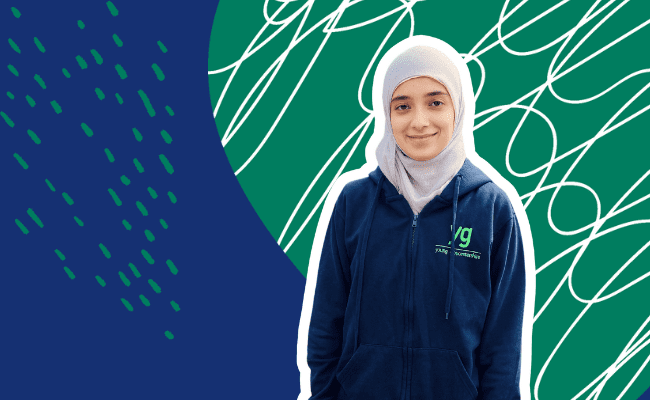
Ramadan 2024
Youth Worker, Khatija Mayat helps us learn more about Ramadan and how we can support our friends and colleagues.
“As we gear up for the start of the Islamic holy month of Ramadan, Muslims around the globe are eagerly awaiting its arrival. Expected to begin around Monday, March 11th (following the arrival of the new moon), Ramadan typically lasts 29 or 30 days, following the lunar calendar. It’s known as a time for fasting— a key pillar of Islam—where Muslims refrain from eating or drinking during daylight hours. But it’s not just about abstaining; Ramadan also encourages reflection and a simpler, more mindful way of living, both physically and mentally.
“If you’re aware that any of your friends or colleagues are observing Ramadan, it’s perfectly fine to check in and see how they’re doing. Don’t worry about eating or drinking around them, or offering them a drink—it’s not offensive. In fact, part of the fasting experience is about maintaining discipline in everyday situations, similar to commitments like taking a break from social media (which can sometimes be even tougher!). Alongside this discipline, fasting also aims to cultivate empathy for those who may not have access to the things we often take for granted, reminding us to be grateful for the abundance of resources available to us.
“Ramadan isn’t just about fasting—it’s a vibrant time when over a billion Muslims worldwide unite in prayer, focus on charitable acts, and share meals together at the beginning and end of each fasting day. While some circumstances may prevent Muslims from fasting every day of the month, participating in these communal activities helps them stay connected to their community. Evening prayers, in particular, are a special time when Muslims gather in mosques to listen to the recitation of the Islamic Holy Scripture, the Qur’an, fostering a sense of unity and spiritual connection.
“Another significant aspect of Ramadan is its connection to the Qur’an. Muslims believe that this holy month was when the Qur’an was revealed to the Prophet Muhammad, particularly on a momentous night known as “the Night of Destiny.” This night holds immense importance in the Islamic calendar, as it is considered the most sacred. While its exact date remains hidden, it occurs during the last ten nights of Ramadan. Muslims eagerly seek out this night each year, believing that it marks a time when human provisions are renewed for the upcoming year and worship during this night is deemed “better than a thousand months” of worship. It’s a quiet and peaceful occasion, filled with spiritual significance.
“Throughout Ramadan, Muslims place extra emphasis on connecting with their faith, observing regular prayer times, and giving generously to charity, with a minimum donation of 2.5% of one’s annual wealth. These practices are among the five Pillars of Islam; Shahada (Faith), Salat (Prayer), Zakat (Charity), Sawm (Fasting), Hajj (Pilgrimage).
“As Muslims strive to increase their good deeds and spiritual devotion throughout Ramadan, the culmination of the month is marked by a joyous celebration known as Eid. On this special day, Muslims congratulate one another for their efforts in observing Ramadan, hoping for acceptance and blessings from God. It’s a time for gathering with loved ones, exchanging gifts, and enjoying festive meals during the daytime once again. Eid serves as a joyful conclusion to the month-long journey of fasting, reflection, and spiritual growth.
“During Ramadan, colleagues who observe fasting may face unique challenges. However, offering support can make a world of difference. Here are some practical tips to show solidarity and understanding:
- Be Mindful of Meal Times: Recognize that fasting colleagues may not participate in lunch or coffee breaks during daylight hours. When scheduling meetings or team events, consider their fasting schedule.
- Offer Encouragement and Understanding: Understand that fasting can be physically and mentally demanding, especially towards the end of the day. Offer words of encouragement, check in with your fasting colleagues, and be understanding of any changes in their mood or productivity.
- Plan Thoughtful Social Events: Be mindful of your colleagues’ dietary restrictions during Ramadan when planning social gatherings. Consider organising iftar gatherings after sunset, where everyone can break their fast together and enjoy a meal.
- Respect Individual Choices: Remember that fasting is a personal choice, and not all Muslims may observe Ramadan in the same way. Respect your colleagues’ decisions regarding fasting and refrain from making assumptions or judgments.
- Educate Yourself: Take the opportunity to learn more about Ramadan and its significance. Foster a culture of respect, understanding, and solidarity throughout the year.
“By implementing these simple but meaningful gestures, we can create an inclusive and supportive workplace environment for all colleagues during Ramadan and beyond. Let’s celebrate our differences and come together.”
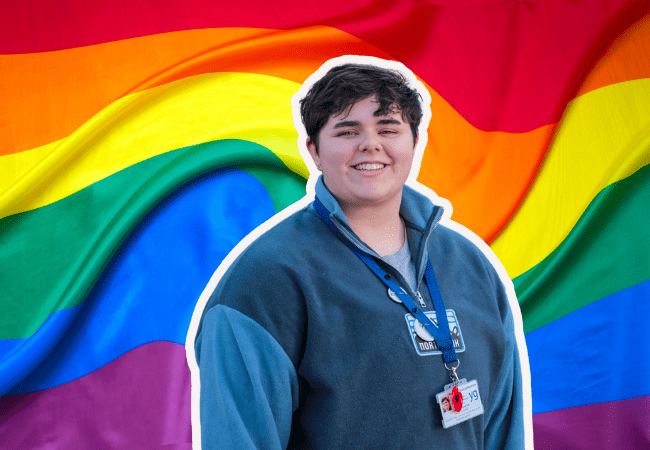
The changing attitudes of parents to LGBTQIA+ children.
Jasmine Cartwright, Therapeutic Worker with YG talks to us about the changing attitudes of parents to LGBTQIA+ children.
“Lots of parents will tell you, raising kids is no walk in the park. It throws curveballs you never saw coming. For parents of LGBTQIA+ kids, there’s a whole extra layer of stuff to think about, diving into a world that might seem totally new. But what is cool; many parents of LGBTQ young people say they end up learning and growing alongside their children as they take on this journey together.
“We’ve come a long way in Britain. Back in the day, being gay could land you in prison or worse. No access to education, and they even called it a mental illness. Fast forward to today, and we’re celebrating with parades, adoption rights, and equal marriage. It’s a positive shift, no doubt. But for those who lived through the old times or saw it happen, the impact lingers. Parents today might not have grown up when being gay was a crime, but homophobia was still alive and kicking during their childhood. That stuff sticks. It could shape their beliefs or pass down intergenerational stigma, where those old beliefs get handed down to the next generations.
“This generation of parents are proving their strength by breaking free from years of stigma and stereotypes. They’re stepping up as advocates for their children, creating safe spaces where they can express themselves freely, and helping them navigate the complex terrain of sexuality and gender identity. The parents we’re working with are on a journey to expand their knowledge, deepen their understanding, and tackle the tough conversations for their children. They’re also reaching out to educate their own parents about the LGBTQIA+ community, providing the support needed for their children to feel secure and happy in all aspects of life.
“This effort isn’t just transformative for the young people; it’s eye-opening for those parents who might not have questioned cultural ideas, biases, and inequalities before. It’s a chance to explore how these things impact marginalised groups, opening their eyes to a whole new world and giving them a fresh perspective on life and society.
“The Arcus Project at Young Gloucestershire offers family gender support for parents and carers where a child within the family is transgender* or exploring their gender identity. (*Transgender is an umbrella term we are using to include any child or young person exploring their gender, who identify as gender diverse, transgender or non binary.) The project aims to support families by offering bespoke 1-2-1 therapeutic mentoring. This can include advocacy, wellbeing support, referrals into other relevant agencies and liaising between you. We help build knowledge and confidence to be able to support your child.
“It’s true, the world can be a bit intimidating, but having a home filled with love, support, and advocacy makes everything a little less daunting. Many of the parents we work with express a simple desire: for their children to be happy, no matter how they choose to live their lives. We say embrace this chapter alongside your child and you’ll both discover new things about yourselves. It’s not just about them learning and growing; it’s a journey that lets you uncover more about yourself too.”
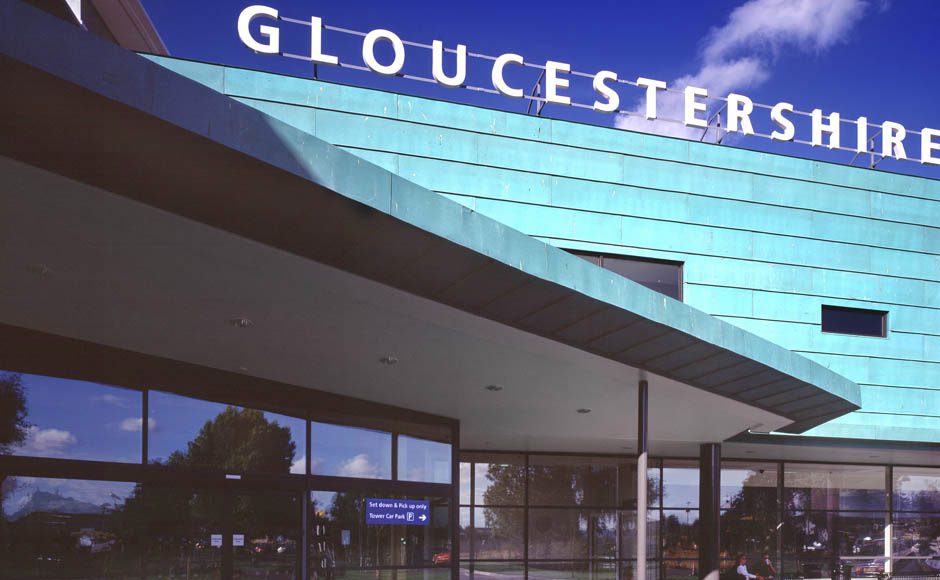
The Role of Youth Work in Mental Health Services.
Over the past five years Young Gloucestershire’s services have evolved to meet a growing need amongst young people to support their mental health. Therapeutic Services Senior Manager Ione Sime talks to us about the role of Youth Work in mental health services.
“When I started out with YG close to ten years ago, we were probably coming towards the end of delivering in more traditional youth club settings. Although we very much still offer group work now, there has been a significant shift towards one-to-one support and in particular support that reflects young people’s mental health needs.
“Why? Quite simply because this is what young people have been telling us they need. Certainly, over the last five years young people using our services have been presenting with greater levels of mental health concerns; depression, anxiety, low confidence being some of these. All of which provide barriers to engaging in our group services and other statutory based services. There are so many reasons why we hear more now about young people’s mental health than ever. It’s never as simple as one specific cause, but young people often pin-point Covid as a trigger for the demise in their mental health along with increased use of social media with experiences of bullying or low self-image. Alongside all of the existing pressures associated with adolescence I think there’s a recognition that the past five years has been tough for young people. From a professional view it makes sense, isolation coupled with connection only through a device. We know that human contact, friends, nature, activity all help with good mental health and for the last five years young people haven’t been engaged in these things.
“At Young Gloucestershire we recognise that Youth Work is about empowerment and voluntary engagement and these themes are key in our work to support young people with their mental health. Our experience shows that mental health and wellbeing can be improved by having a positive relationship that is built on the young persons terms, focusing on the young person as an individual rather than thinking of them as a diagnosis that needs to be cured or a behaviour that needs to be fixed.
“Young people tell us that frontline clinical services can often feel impersonal and have a lack of flexibility that makes it hard for young people to engage. At YG we have the freedom to offer a more flexible approach that can meet young people where they are comfortable. For instance, if a young person is struggling to leave the house, it is unlikely they will be able to attend a GP appointment, where they may be given medication or sign posted to another service to book another appointment. We can meet young people in their places and spaces, in communities, at schools or anywhere they feel comfortable and safe. We will be present with them while they talk about themselves and explore who they are and what they want to achieve. We will hand hold them through a process of regaining their confidence and inform them about their options for mental health support if it is something they want to explore.
“Youth work allows us to take a much more personal approach that listens to the young person and explores their ambitions and then supports them to achieve them. Not all young people identify their mental health as being their biggest challenge when they come to us. They may simply feel that they don’t get on with their parents or they are being bullied at school. However, we can see on the referral form that their teacher says they are anxious, or they have past trauma. We don’t tackle that head on but instead we listen to the young person and focus on working with them to develop tools that will help them take steps forward. A lot of mental health interventions for young people focus just on mental health – and rightly so. As youth workers we can look at the practical elements of the young person’s life that affect their mental health, like family, housing, relationships, education and individual circumstances. Then we can support the young person to make positive changes, which in turn affects their mental health positively. We don’t look at just their mental health, we look at everything that surrounds it and look at how we can move forward positively in all those areas.
“Sessions therefore are unique to each young person. One day a member of the team might accompany a young person on a ‘walk and talk’ or support them in some meditation or help them to make a ‘self-sooth box’. They equally might be helping them to look for work experience or attend an open day at college or catch a bus. Not all our work has a direct focus on mental health but everything we do will help to improve mental health. Much of our work will also better prepare young people when they do feel ready to unpack their experiences in counselling – which can be a hard thing to do, but they will be armed with tools to help them cope.
“We have seen how our youth work approach can also work alongside clinical and statutory support, offering an additional layer of support that focuses on the positive and on the future for the young person. We are also able to support clinical services to understand more about the individual and what makes them tick. We have a variety of collaborative projects which allow young people access to both youth work and counselling/NHS support, recognising that both are key in ensuring positive mental health outcomes for young people. Currently the charity is focusing on how we can continue to meet young people where they are at, taking our skills into schools and recently launching our services in hospitals.
“YG staff can now be found on the Paediatric Ward in Gloucester Royal Hospital working with young people 11-18, using art, games and conversation to offer companionship during their time on ward. We offer a listening service to young people struggling with mental health offering practical guidance and building aspirations. In addition, we are working in the community to provide youth work support to patients who have been discharged. By offering practical interventions we aim to prevent re-admission due to mental health. Working alongside multi-disciplinary teams to support and safeguard the young person and undertake needs analyses and referring to appropriate services.
“We recognise the model of youth work can have a positive impact in hospitals and schools and removes the barrier for the young person of having another threshold to cross. I think some young people also favour one-to-one support as they only have to consider building trust with one person, when thinking about mental health that makes sense. Depression, anxiety, low confidence all makes you unlikely to want to engage with a group of unknown people in an unknown setting. One-to-one in a familiar space works. That’s not to say that we don’t think there is a place for traditional youth clubs, it is just about the needs we are seeing at the moment and looking at how we can best meet them.
“We are being welcomed by our clinical and statutory partners to step into their spaces. We have been working over the past five years to prove that youth work has a vital role to play and can support young people in a different way to nurses, doctors, teachers etc but can complement their roles. Youth workers have a unique skillset that enables us to build a relationship that empowers young people to take control of their futures. This skillset doesn’t necessarily come from a specific qualification although many of our staff are drawn to our work from backgrounds in psychology, many join us from teaching, supported housing or other roles where they have engaged with young people. More often than not, it is their lived experience that gives them an insight that helps them to empathise and embody the ethos of youth work. To see young people as your equal and to facilitate and support rather than to direct and dictate.”

YG’s Warm and Well Evenings
As winter arrives, providing warmth and comfort becomes crucial, especially for the young people across our county.
At our Tewkesbury Hub, we open our doors during the colder months to create a warm and welcoming space.
Our ‘Warm and Well’ evenings are held every Tuesday and Thursday from November 28th to February 8th from 4 to 6pm, offering comfort and security to young people during winter’s dark evenings.
These gatherings serve more than just physical warmth; they offer a safe space for connection, relaxation, and support and allow our youth workers to address the impact of winter and the isolation it can cause for our young people.
Young people can bond, converse, and make new friendships through games, movies, and food at ‘Warm and Well’ evenings. Our approach focuses on including all and ensuring everyone feels empowered and safe.
A quote from a study published in the Journal of Epidemiology and Community Health stated that:
“Social interactions and the creation of warm, safe spaces during winter have significantly contributed to an individual’s mental health and well-being. Meaningful social connections and a sense of community not only provide emotional support but also serve as a buffer against stressors, thereby reducing the risk of mental health issues such as depression and anxiety during the colder months.”
The positive impact of social interactions on mental well-being offers emotional warmth during colder months, and that’s why we’re welcoming young people to take advantage of our Tewkesbury Hub. There’s no need to book beforehand; our youth workers will welcome you in from the cold.
